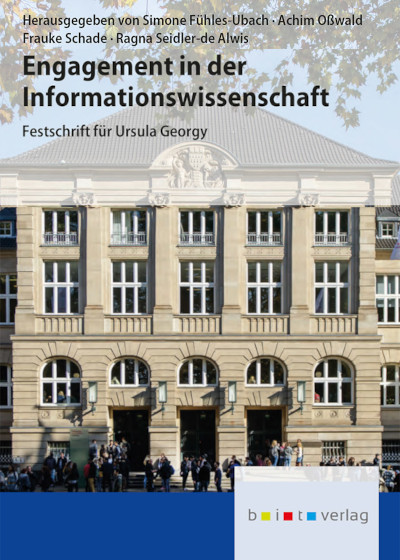 WEITERE NEWS
WEITERE NEWS
- Wissen vernetzen, um Demokratie zu stärken – Aktuelles aus der Goethe-Universität Frankfurt
- DFG-Jahresversammlung vom 30. Juni – 2. Juli 2025 in Hamburg
- RfII-Konferenzbericht „10 Jahre Rat für Informationsinfrastrukturen.“ Berlin, 24. März 2025
- Zehn neue Transferprojekte stärken den Innovationstransfer am ZDIN
- Ulli Lust erhält den Deutschen Sachbuchpreis 2025 für „Die Frau als Mensch“
- Ein Jahr WMS: Bibliotheken ziehen positive Bilanz mit OCLC Bibliothekssystem
- Archäologie im Zeitalter von Big Data
- Studiengang „Foundations in Data Science“ geht an den Start – TU Chemnitz

Aktuelles aus
L
ibrary
Essentials
In der Ausgabe
- Neue Anforderungen an Führungskompetenz in wissenschaftlichen Bibliotheken
- KI in der Katalogisierung: Drei Chatbots auf dem Prüfstand
- Mehr als nur eine ID: Warum Forscher ORCID nutzen und warum nicht
- Anxiety in der Hochschullehre: zögerlicher Einsatz von ChatGPT
- Smart Reading in Bibliotheken: Aktive Beteiligung von Leser:innen
- Kinder im digitalen Zeitalter:
OECD-Bericht zeigt Handlungsbedarf für Politik und Bildungseinrichtungen - Bibliotheken und ihre Rolle beim Klimaschutz
- Initiative für eine unabhängige Infrastruktur biomedizinischer Literatur –
ZB MED entwickelt PubMed Alternative - Leiterin der Library Of Congress entlassen
- Data Citations –
Datenauswertung in Bibliotheken - Unternehmen investieren gezielt
in künstliche Intelligenz - Springer Nature spendet KI-Werkzeug „Geppetto“ an die Verlagsbranche zur Bekämpfung betrügerischer Einreichungen
- Die San José State University
setzt auf Ihren ersten KI-Bibliothekar

fachbuchjournal























































